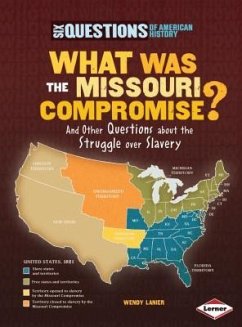In 1820 the U.S. Congress passed an act known as the Missouri Compromise. The act represented a compromise between pro-slavery and anti-slavery factions in Congress. In 1818 Missouri asked to be admitted to the Union as a slave state. But the Senate at the time was evenly divided between pro-slavery and anti-slavery states. Neither side wanted to become the minority. As a compromise, Missouri was admitted as a slave state while Maine was admitted as a free state. As part of the act, Congress also set the 36th parallel as the line above which slavery could not spread. The Missouri Compromise quieted the question of slavery in new states at the time, but it showed the deepening divide between the North and South on the overall issue








